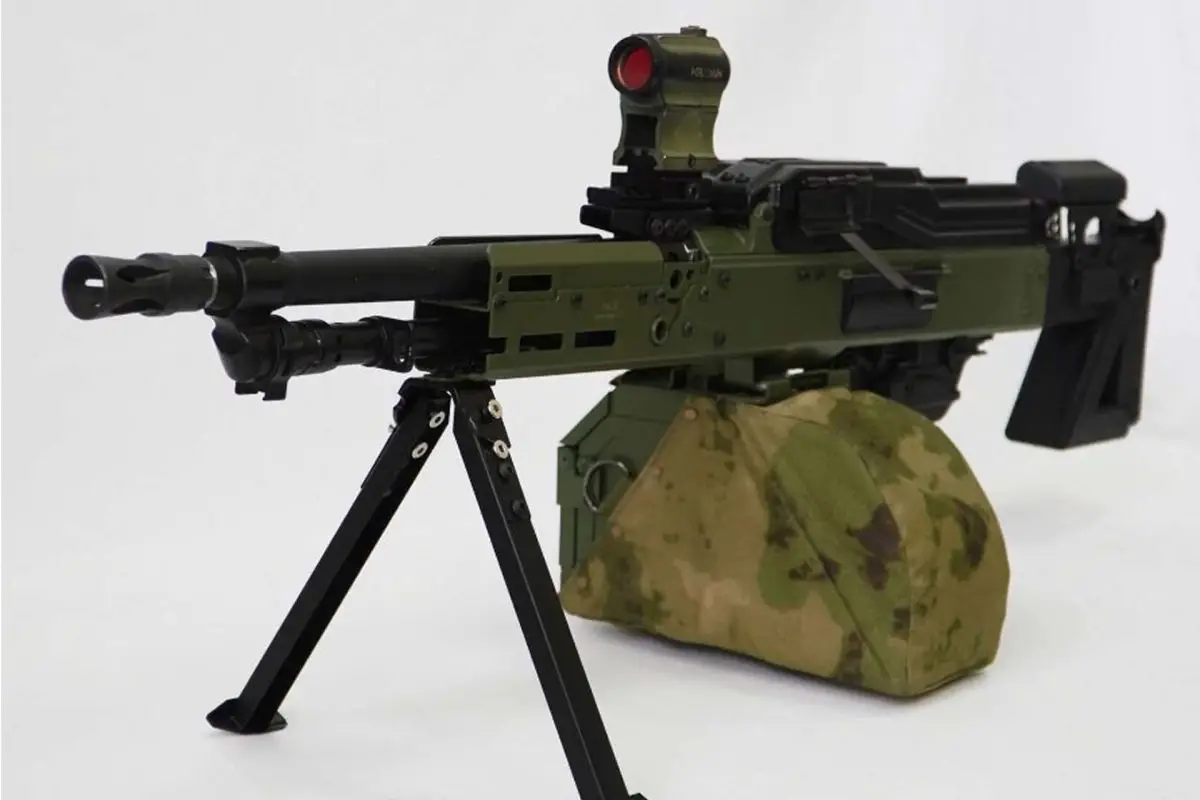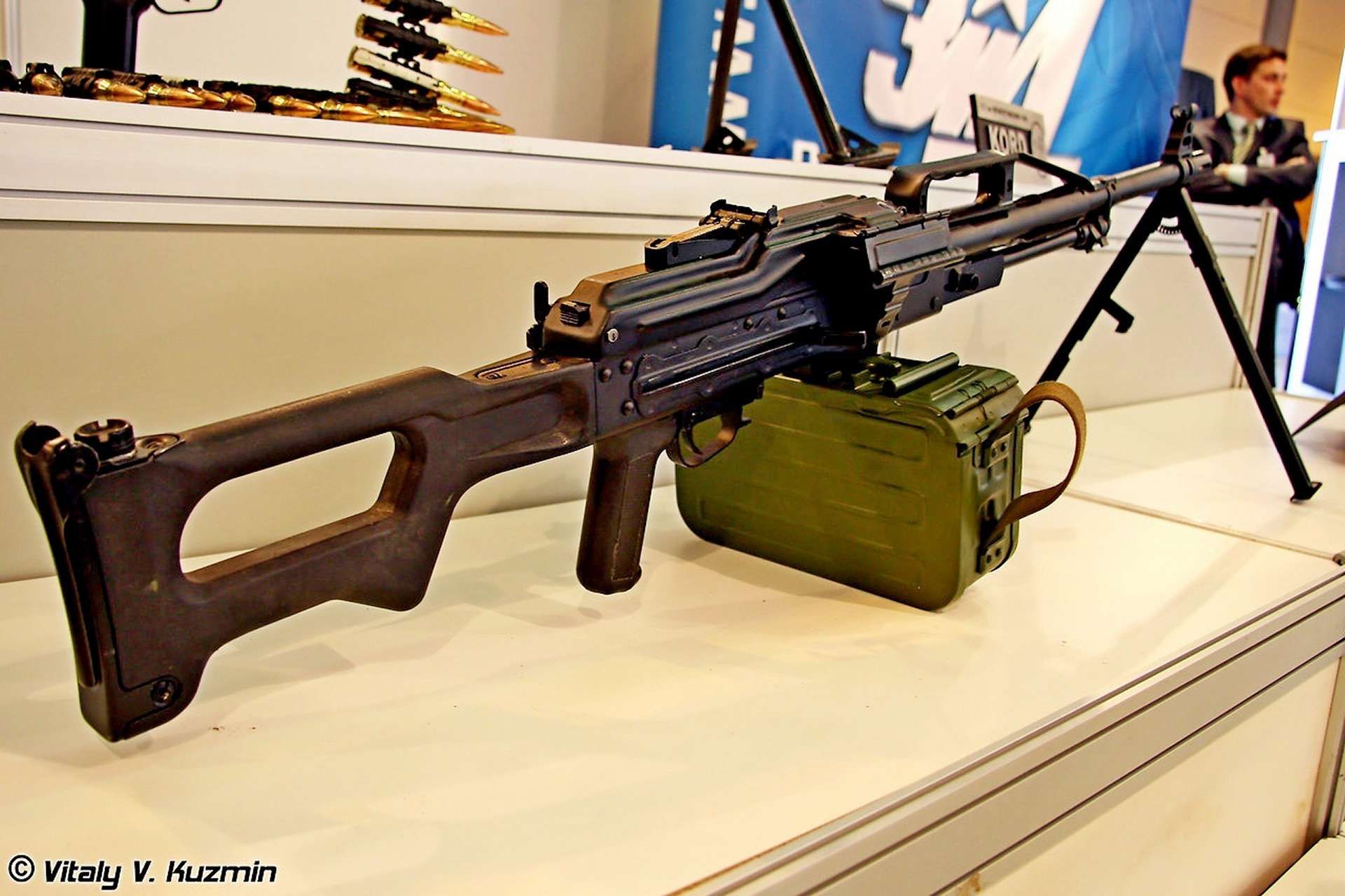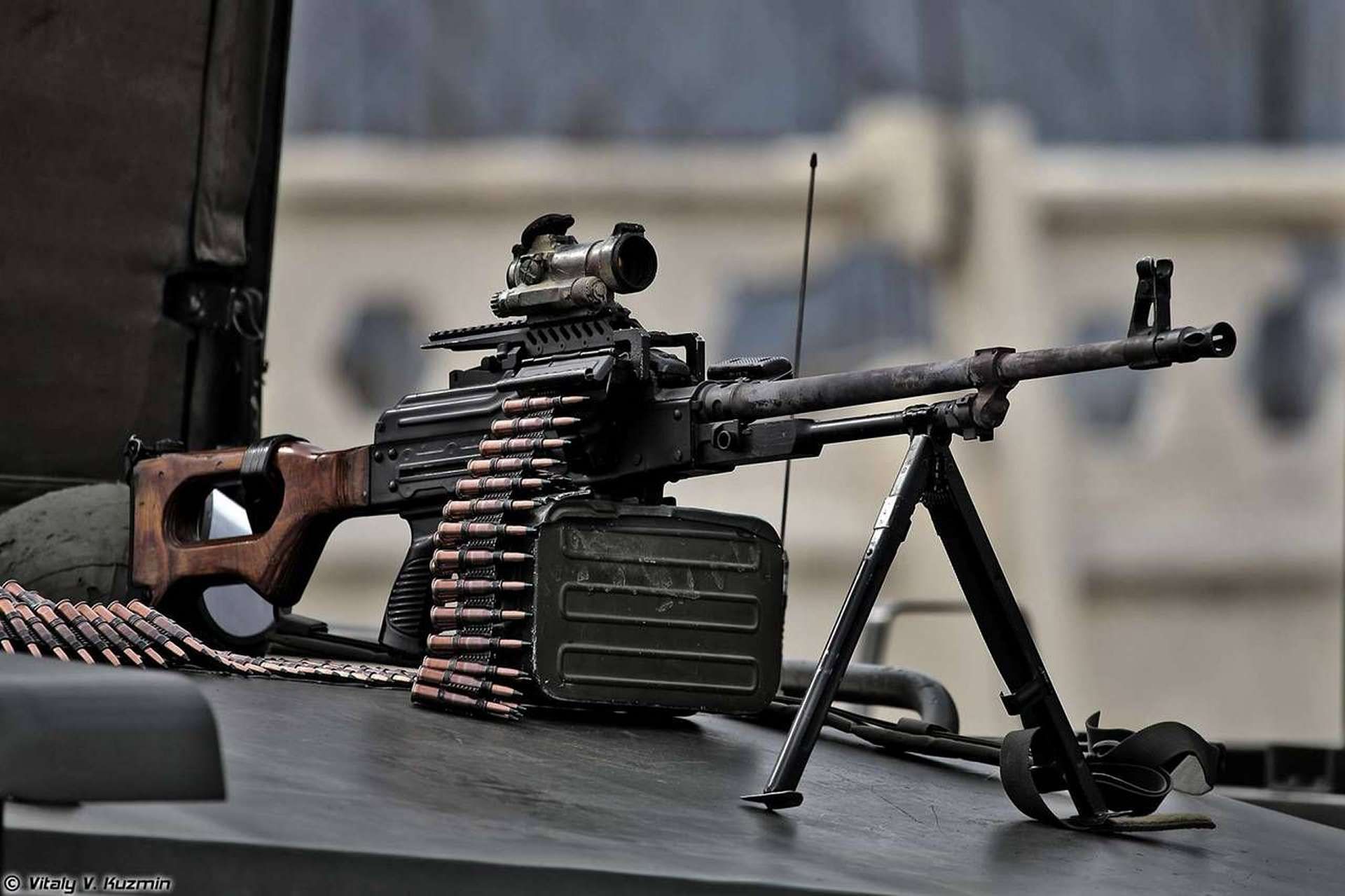Breaking News
Russia's new PKZ 7.62mm machine gun may replace the Soviet PKM in Ukraine.
On June 13, 2024, several Russian media outlets reported that a new 7.62mm machine gun, designed by the Perm Design Bureau "Labi," is currently undergoing testing. Known as the PKZ, this machine gun may be deployed to the conflict zone in Ukraine to support Russian assault troops if the testing is successful. The PKZ's design aims to enhance operational effectiveness by enabling quick deployment and reducing the machine gun's profile.
Follow Army Recognition on Google News at this link

The PKZ 7.62mm machine gun is lighter and shorter than the PKM and Pecheneg models currently used by the Russian Army. (Picture source: Russian media)
The PKZ is based on the modernized variant of the Kalashnikov machine gun (PKM), the PKP Pecheneg. It is intended to provide a relatively light, compact, and powerful weapon for Russian assault units, specifically for operations such as storming buildings in dense urban environments, trench warfare, and securing vehicle convoys. One of the notable features of the PKZ is its compactness and reduced weight, making it 1.5 kg lighter than the PKM.
This new machine gun uses the standard 7.62x54mm cartridge of the Russian Army and is equipped with a 100-round box magazine. It measures 850 mm in length and weighs 7 kg without cartridges, making it lighter and shorter than the currently used PKM and Pecheneg models.
The PKM (Pulemyot Kalashnikova Modernizirovanny) is a Soviet-designed general-purpose machine gun, adopted in 1969. It operates on a gas-operated, long-stroke piston system and is chambered for the 7.62x54mmR cartridge. The PKM is designed to be lightweight and includes features such as a stamped steel receiver, quick-change barrel, and flash suppressor. It can be deployed in various roles, including infantry support and vehicle-mounted applications, with a rate of fire of 650-750 rounds per minute and an effective range of up to 1,100 meters. It has been widely used by armed forces around the world.

The PKP 'Pecheneg' is a modernized version of the PKM, which features a heavy, fixed barrel with a radial cooling sleeve that employs forced-air cooling, allowing for sustained fire without overheating. (Picture source: Vitaly Kuzmin)
The PKP 'Pecheneg' is a modernized version of the PKM, introduced in 2001. It features a heavy, fixed barrel with a radial cooling sleeve that employs forced-air cooling, similar to the World War I Lewis Gun. This design allows for sustained fire without overheating. The Pecheneg retains the 7.62x54mmR caliber and is fed from a non-disintegrating belt, with design modifications aimed at improving barrel life and cooling efficiency, making it suitable for intensive combat situations.
Chief designer Andrei Malkov noted that the technical specifications for the new machine gun included the requirement that it be easily concealable under an arm, covered with a raincoat, to avoid being targeted by enemies who often aim at machine gunners and snipers first. Additionally, the specifications require that a fighter can raise the PKZ with one hand and open fire immediately to enable faster deployment. However, more detailed information regarding its design features, reliability, and manufacturability is not available.
The future adoption of the PKZ for Russian military service remains uncertain. The Labi Design Bureau, founded by inventor Andrei Labi, has no prior experience in designing weapons, and the PKZ is its first small arms model. There is also no established production capacity for its manufacture, and given the challenges domestic designers face in getting their products adopted by the military, the likelihood of the PKZ being deployed in the near future is low.

The PKM (Pulemyot Kalashnikova Modernizirovanny) is a Soviet-designed general-purpose machine gun, adopted in 1969, which operates on a gas-operated, long-stroke piston system and is chambered for the 7.62x54mmR cartridge. (Picture source: Vitaly Kuzmin)


























